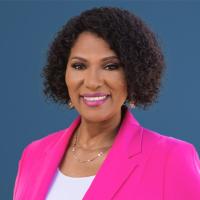'Electric Bill $500': If Inflation Is Easing, Why Are Prices Still so High?
For more than a year, the Federal Reserve has raised interest rates to lower inflation. Prices are still high, however, especially when it comes to necessities like gas and groceries. With a growing number of Americans living paycheck to paycheck, many are struggling to make ends meet.
"We're looking at about $500 a week if not more," Amber Bergeron of Dutchtown, LA told CBN News.
Earlier this year when food prices reached 4.7% higher than the year before, some took to social media to air their frustration.
"Inflation is out of control," one consumer said on TikTok.
Amber is a stay-at-home mother of four. Her husband works as a tankerman in the oil field. She recently shared how tough it is trying to keep up with rising monthly expenses.
"Honestly I don't know if gets any worse how much longer we'll be able to keep our head above water," Amber explained. "Our electric bill is projected to be $500. And then next month I can't even imagine."
Amber is not alone.
The standard of living for Americans has dropped in the last two to three years.
And according to a recent CNBC survey, 52 percent of adults said they have felt more financially stressed since before the pandemic in 2020.
Reasons for the economic stress include sticker shock for everyday goods and services.
For example, according to Edmunds, new car costs have skyrocketed around 32 percent higher over the last five years.
"We've had the price of a new car get precariously close to an average of $50,000 a vehicle, and virtually no car is available in terms of a new vehicle at $20,000 or below," said Mark Hamrick, Senior Economic Analyst for Bankrate.
According to the U.S. Bureau of Labor Statistics, auto insurance is also more expensive. In July, those figures jumped 16 percent more than the same time last year and have grown a whopping 70 percent in the last decade.
And the list keeps growing.
Car maintenance is up 13 percent since 2022, according to the Bureau of Labor Statistics.
And median home prices are up 31 percent since 2020.
And because of these soaring prices Quicken found that 61 percent of Americans, even those bringing in $150,000 a year, live paycheck to paycheck.
Hamrick points to record inflation as the driving force.
During the pandemic, inflation hit a 40-year high of 9.1 percent. It is currently rising by 3.7 percent. So, that means prices are still much higher than they used to be, and they're still rising but not as fast.
"Until inflation is brought under control, we're going to continue to have these strains that Americans are feeling," said Hamrick. "And I think you can attribute most of the difficulty that consumers are feeling right now – you can attribute that to inflation."
Hamrick also said the major issue is that prices are going up faster than incomes. That means the essentials like housing, gas, and groceries cost more although people have less money to pay for them.
"Many households need two-income earners just to keep pace," Hamrick explained. "And that's also in the constraints of high healthcare prices, high cost of food, energy as well as access to higher education. So, it's completely understandable that many households are feeling strained these days."
Dan Darling, Director of the Land Center for Cultural Engagement suggested that lawmakers fight inflation as a family value.
"It's affecting their families," said Darling. "Mom has to work more. Kids are left by themselves more because parents are working more. There are all these pressures that I don't think people at the top don't really see."
Local food banks are also feeling the impact.
"The food bank relies on food purchase, fuel, transportation, shipping costs, all of those things, and when inflation hits, all of those things go up," explained Chris Tan of the Foodbank of Southeastern Virginia and The Eastern Shore. "And so, we know that our dollar doesn't stretch as far as it used to and at the same time, we're seeing more demand from the people who need our services."
Tan also highlighted demand is higher today than when COVID-19 sent the economy reeling. He explained local food bank partners are feeling the pain.
"They're seeing increases of 50 to 60 percent from the height of the pandemic. Some of them will serve two times as many people as they did the last year and three times as many people as they did in 2019," said Tan.
To cope, a growing number of Americans are turning to credit.
Quicken also reports that 46 percent of consumers making more than $100,000 a year are more dependent on their credit cards than ever before. And about a third say they can't afford to pay off their balances by the end of the year.
Financial Planner Robin Tull, of Tull Financial Group in Chesapeake, VA, suggests ways to manage and save.
"Have a spending plan," said Tull. "You have to look at things you're spending on and is it that important? You look at subscriptions, you look at streamings. There are so many things that if you don't look at your spending you can't really cut back. So, you need to look at those things. Maybe you don't have to eat out as much."
Meanwhile, as inflation seems to be cooling, many say government policies remain out of touch with reality and the pain families are facing.
"I just would like to know when it started easing up because I would love to be able to feel that as well," said Amber. "I just feel like myself and quite a few other Americans feel like we've been abandoned and just left to drown."
"Inflation easing doesn't mean prices are going back down to where they were two years ago," Darling said. "What it means is they're not going up as fast. That's not much solace to people who are trying to put their grocery bills together and pay their utilities and do all these things. We need to have economic policies that strengthen the family and support the family so that these pressures don't pull them apart."




